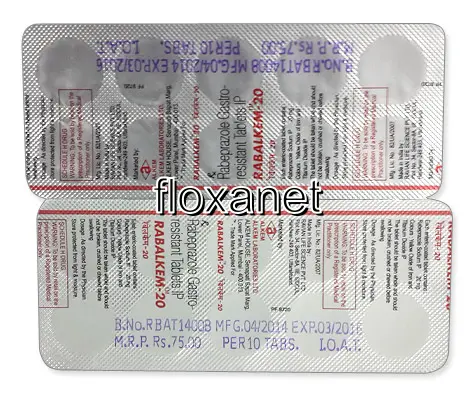| Package | Dosage | Price | Price per Dose | |
|---|---|---|---|---|
| Dosage: 10mg | ||||
| 360 pill | 10mg | $334.49 | $0.93 | |
| 180 pill | 10mg | $181.81 | $1.01 | |
| 120 pill | 10mg | $133.23 | $1.11 | |
| 90 pill | 10mg | $106.86 | $1.19 | |
| 60 pill | 10mg | $80.49 | $1.33 | |
| 30 pill | 10mg | $47.18 | $1.58 | |
| Dosage: 20mg | ||||
| 360 pill | 20mg | $669.00 | $1.86 | |
| 180 pill | 20mg | $359.48 | $2.00 | |
| 120 pill | 20mg | $263.71 | $2.19 | |
| 90 pill | 20mg | $209.57 | $2.33 | |
| 60 pill | 20mg | $145.73 | $2.43 | |
| 30 pill | 20mg | $77.71 | $2.60 | |
| 10 pill | 20mg | $29.13 | $2.90 | |

Rabeprazole Description
Overview of Rabeprazole
Rabeprazole is a widely used medication classified as a proton pump inhibitor (PPI). It is primarily prescribed to reduce the amount of stomach acid produced. This medication is effective in treating a variety of acid-related conditions, ensuring relief from discomfort and preventing complications associated with excess stomach acid. Its rapid onset of action and high potency make it a popular choice among healthcare providers and patients alike.
How Rabeprazole Works
Rabeprazole works by blocking the H+/K+ ATPase enzyme system located in the gastric parietal cells of the stomach lining. This enzyme system is responsible for secreting hydrochloric acid into the stomach. By inhibiting this enzyme, Rabeprazole significantly decreases acid production, providing symptomatic relief and healing tissues damaged by acid erosions.
Uses and Indications
This medication is commonly used to treat conditions such as gastroesophageal reflux disease (GERD), Zollinger-Ellison syndrome, and erosive esophagitis. It is effective in preventing and healing ulcers, particularly those caused by long-term use of certain medications like non-steroidal anti-inflammatory drugs (NSAIDs). Patients suffering from frequent heartburn or acid reflux often find Rabeprazole beneficial in alleviating symptoms and improving quality of life.
Administration and Dosage
Rabeprazole is typically taken once daily, usually in the morning before a meal. The dosage may vary depending on the severity of the condition and the patient’s response. It is important to follow the prescribing doctor's instructions carefully to maximize effectiveness and minimize potential side effects. The medication is available in different forms, including tablets and capsules, making it easy to incorporate into daily routines.
Potential Benefits of Rabeprazole
Many users report rapid symptom relief after starting Rabeprazole therapy. Its high bioavailability and strong suppression of acid secretion often lead to healing of esophageal and gastric tissues. Patients also appreciate its convenient once-daily dosing regimen, which aids in compliance. Furthermore, Rabeprazole’s ability to prevent acid-related damage has made it an essential medication in managing complex gastrointestinal disorders.
Possible Side Effects
While generally well-tolerated, Rabeprazole may cause some side effects. Commonly reported issues include headache, diarrhea, nausea, and abdominal pain. More rarely, some users might experience dizziness, rash, or gastrointestinal disturbances. Long-term use can lead to nutrient absorption issues, such as decreased magnesium or vitamin B12 levels. It is important to discuss any adverse effects with a healthcare provider and report unusual symptoms promptly.
Precautions and Interactions
Patients should inform their doctor about any other medications they are taking, as Rabeprazole can interact with drugs such as atazanavir, digoxin, and certain antifungals. Those with liver disease or a history of Clostridium difficile infections should also exercise caution. Prolonged use of Rabeprazole may increase the risk of fractures or deficiencies in nutrients like magnesium. Regular medical supervision is recommended to monitor these potential issues.
Conclusion
Rabeprazole serves as an effective and reliable medication for managing excessive stomach acid and related conditions. Its ability to quickly decrease acid production and promote healing makes it a cornerstone in gastrointestinal therapy. Patients choosing Rabeprazole should always follow their healthcare provider’s guidance to ensure safe and effective treatment. Proper use minimizes risks and helps achieve the best outcomes for digestive health.